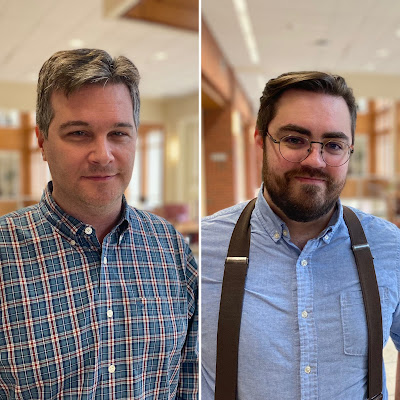Fall 2021: OU Engineering Presents Dissertation Excellence Awards
Seven students recently received the Engineering Dissertation Award, a $5,000 award created to encourage doctoral students to graduate with excellence. While the award has been in existence for several years, this year’s crop of students faces different challenges than those in the past, says Zahed Siddique, the college’s associate dean for research who heads the awards committee.
During most of 2020, these scholars lacked face-to-face interaction with advisers and other PhD students that is critical to the doctoral process, Siddique says. Engineering dissertations take two to three years to write, with most research completed in a lab. “We had to reimagine how our students could work in a laboratory setting, which meant reviewing productivity expectations and setting new timelines. With PhD training, there is always the unknown; a significant part of the program is learning to adapt.
“COVID-19, however, was on a completely different level, bringing on more anxiety for students.”
The students are expected to graduate by May 2022. Their seven dissertations include such complex topics as diffusing optical tomography to study brain activity and understanding the role of iron-reducing bacteria in carbon steel corrosion.
Trevor Looney’s goal was to develop failure criteria for a new class of concrete, referred to as ultra-high-performance concrete or UHPC. Although more expensive than traditional concrete, UHPC outperforms existing materials in strength and durability. The research may help engineers develop repair or replacement strategies that will extend the life of existing crumbling infrastructure, a critical need for the United States, says Looney, a civil engineering student.
Looney initially worried that the closure of university research labs during the pandemic’s peak would delay his dissertation. However, the time away from the lab allowed him to delve into research theories. “This improved my overall understanding of the topic,” Looney said.
OU’s Office of Technology Commercialization is now evaluating Looney’s work for potential patenting and commercial applications.
Fatema Tarannum, a mechanical engineering student, studies how faster heat dissipation is crucial to prevent electronic components from failing due to overheating issues of increased power supply in the electronic industry. “Efficient thermal management systems made of high thermal conductivity material are strongly recommended to meet such demand,” she said. “My research concentrates on the fabrication of high thermal conductivity material using polymer.”
Tarannum says that overcoming social and cultural shocks was incredibly challenging during the peak of the pandemic. Growing up in Dhaka, Bangladesh, she is grateful for OU faculty who made her feel comfortable so she could concentrate on her work here in Oklahoma.
“Even though I was worried about the progress of my research, the time of the pandemic ended up being very productive for me as I was able to work in the lab without any interruption and I could prepare myself more for graduation,” Tarannum said.
“These seven students not only excelled in their research, but they also accomplished this at a very unusual time in our country’s history. Our faculty, like so many around the world, worked hard to mitigate depressive feelings and other negative emotions that occurred during the pandemic. All of us in the Gallogly College of Engineering are particularly pleased to present this year’s awards,” Siddique said.
Recipients are:
For a list of recipients and research topics, click here.
The Engineering Dissertation Awards are made possible through the Thomas I. Brown, Jr. Endowed Scholarship Fund, established in 2018 with a nearly $2 million estate gift to the University of Oklahoma Foundation. Brown, who earned a 1950 OU bachelor’s degree in electrical engineering, created a new market for electronic control of industrial gas turbines. He died in 2016.
To learn more about the Gallogly College of Engineering at the University of Oklahoma, visit ou.edu/coe.
###



